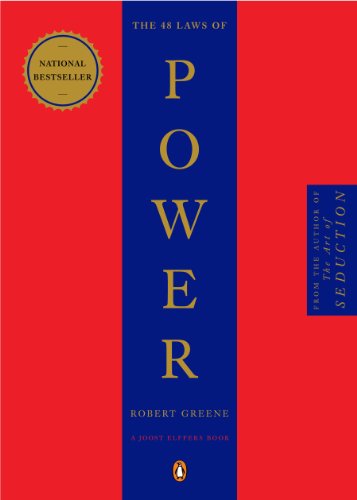

This article is an excerpt from the Shortform summary of "The 48 Laws of Power" by Robert Greene. Shortform has the world's best summaries of books you should be reading.
Like this article? Sign up for a free trial here .
Overview of Law #17: Keep Others in Suspense: Cultivate an Air of Unpredictability
Because people crave predictability and a sense of control, you can throw others off balance and even terrify them by cultivating an air of unpredictability. While your opponents are stressing themselves out by trying the explain and anticipate what you’re doing, you can achieve your objectives almost unnoticed.
Principles of Law 17
Unpredictable, sudden events like tornadoes and flash floods terrify people, leaving them in fear of the next one. According to Law 17 of the 48 Laws of Power, you can have a similar effect on people by cultivating an air of unpredictability.
We want other people to be predictable, and we ourselves follow patterns and routines, out of laziness, a preference for comfort, or a desire to keep the peace. Animals follow patterns as well, which allows us to hunt them successfully.
But unpredictability is an important tool for wielding power — by suddenly doing something no one expected you create fear and confusion, which keeps others off balance, allowing you room to maneuver. It may also prompt them to make mistakes.
You can use this tactic effectively even if you are the underdog. For instance, during the Civil War General Stonewall Jackson confused and stymied the much larger Union forces that were marching on Richmond, by repeatedly moving north and then back south again. In response, Union General George McClellan slowed his forces, while trying to figure out what was going on, which gave the South time to reinforce Richmond. This turned certain defeat into a draw. General Jackson avoided outright defeat by following Law 17: Keep Others in Suspense: Cultivate an Air of Unpredictability.
Jackson used this tactic repeatedly with great success. When you’re outgunned, be unpredictable. Or use the tactic in more typical day-to-day situations — you’ll intimidate people and keep them on the defensive with random, inexplicable acts.
Besides unsettling people, you’ll draw attention and get people talking, as they try to understand your motives. When you cultivate an air of unpredictability, you generate not only fear but also respect.
Putting Law 17 to Work
Here’s an example of how to apply Law 17 of the 48 Laws of Power: In 1972 chess great Bobby Fischer so unnerved Russian champion Boris Spassky with unpredictability, that Spassky had a meltdown and left without completing the match in Reykjavik, Iceland.
Identifying patterns, and understanding and predicting an opponent’s moves, is particularly important in chess, and Spassky was a master at it, but when these skills failed to work with Fischer, he fell apart.
Fischer apparently knew how to cultivate an air of unpredictability. Among other things, Fischer arrived late to the games, complained loudly and constantly about everything, behaved erratically, and made inexplicably poor moves, even losing the first game for seemingly foolish reasons. He forfeited the second game for not showing up on time.
Spassky became convinced that Fischer had hypnotized him, drugged the orange juice, or had altered the chairs in some way. Then he started complaining of hallucinations, finally resigning from the match.
Fischer defeated Spassky by following Law 17 of the 48 Laws of Power and keeping others in suspense and, ultimately, terror.
Exceptions to Law 17
Are there exceptions to Law 17 of the 48 Laws of Power? Should you ever not cultivate an air of unpredictability? Occasionally, it’s better to be predictable. For instance, you can use predictable actions as a smoke screen. People become complacent when you behave as expected and don’t notice what you’re really doing.
If you’ve been predictable for a while and then do something completely different, people may be so surprised that they don’t believe what they see. Muhammad Ali used this tactic to defeat George Foreman in 1974. Forman expected him to dance around to wear him out as Ali typically did. Ali announced he would go on the attack instead, but Foreman didn’t believe it. Foreman was shocked that Ali came out punching, and he responded with wild punches and wore himself out. With a sudden right cross, Ali knocked him out.
When you’re in a subordinate position, being unpredictable can upset your boss and prompt closer supervision, or an unfavorable performance review. You can come across as indecisive or as someone who keeps things stirred up, and your boss won’t trust you. So use this tactic wisely, but in general, follow Law 17: Keep Others in Suspense: Cultivate an Air of Unpredictability.
———End of Preview———

Like what you just read? Read the rest of the world's best summary of "The 48 Laws of Power" at Shortform . Learn the book's critical concepts in 20 minutes or less .
Here's what you'll find in our full The 48 Laws of Power summary :
- Why you should never outshine your boss
- How to appear like a friend but behave like a spy
- The 6 rules you absolutely must not violate, if you want to be successful






